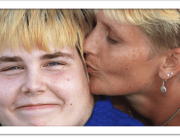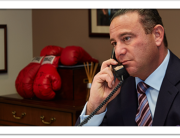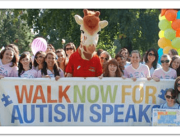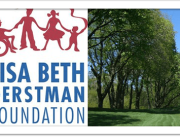For Newsday by Brad Gerstman
The incidence of autism continues to grow at an astonishing rate. This past year, the Centers for Disease Control reported that it affects 1 in 88 children — up from 1 in 110 — and 1 in 54 boys. That makes it more common than pediatric AIDS, cancer and diabetes combined.There is no known cause or cure for autism. What we do know is that the earliest interventions provide the most significant gains for these children. Autism can affect a child’s functioning at different levels, from very mild to severe, and affect how they communicate, interact, behave and learn.
Yet, the New York State Education Department continues to prevent the authorization of new schools and rarely allows the expansion of existing schools for children with special needs.
Each year, parents must meet with the Committee on Special Education to discuss their children’s individualized education plan. There is little evidence that the committee considers the differences between a child’s school and home environments — differences that can be quite disruptive to children with autism in particular — and how these differences affect the child’s ability to receive a free and appropriate education.
That’s why a bill recently passed by the State Senate and Assembly was such good news for families of these children, and Gov. Andrew M. Cuomo should sign it. If it becomes law, it would provide for an improved special education placement process, one that would ensure appropriate placements for children with special needs, as well as timely tuition reimbursement for previously denied placements to parents or programs.
Yet school officials continue to harp on the misconception that the bill will be used only for students to attend religious schools at the expense of helpless taxpayers.
Publicly funded private schools are often capable of individualizing programs and addressing issues not only in the school setting but also in the home and community. In addition, some of these schools have the expertise and ability to work through challenging behaviors, because of their different structure and setting. There have been many cases in public schools in Nassau County where the intervention for student aggression is to send the child home. The behavior then typically ends up occurring at home and in community settings — leading to the need for other support services.
The goal of these publicly funded private schools is to provide students with the tools they need to succeed in a more integrated setting, whether that be their families, the broader community, or a return to the public schools. If a state-authorized nonpublic institution is proven to provide adequate — if not better — programs for children with special needs, the Committee on Special Education can agree to pay the child’s tuition to attend.
But sometimes the best school for a child with autism or other special needs does not have a program approved by the state Education Department. For these private schools, tuition has not been reimbursed. The new law would change existing law by requiring the committee to consider these additional factors and therefore, additional educational settings as well. Having these schools available as options for the children they could help is essential to delivering individualized, quality-driven plans to meet autism’s ever growing demand.
The conversation about the recently passed bill should not be twisted to raise church-state questions. Instead, we as a community must focus on the necessity of such legislation to help children with special needs have access to educational settings where they can excel. Religion is but one of many factors that legislators are rightfully willing to consider in aiding these students.
It is the hope of families in the autism community that, with Gov. Cuomo’s support and leadership on this issue, children with special needs and those suffering from disabilities will be better equipped to meet their educational goals and succeed in settings that provide for the best possible outcomes.
Bradley Gerstman is an autism advocate, spokesman for LI-Schoolchoice.org and founding partner of Gotham Government Relations and Communications.






Recent Comments